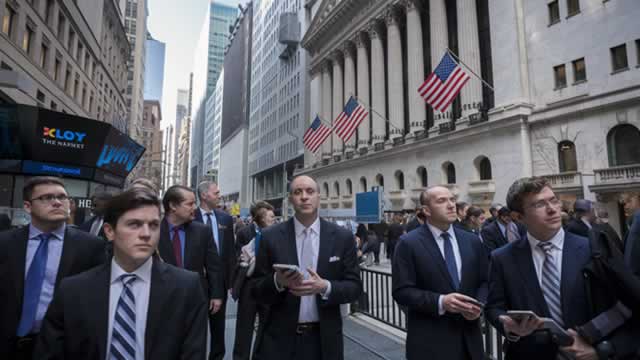The Looming Economic Recession in 2025: Five Major Shocks
The global economy has been experiencing a period of uncertainty and instability, with various factors contributing to this trend. One of the major economies that is expected to face a significant downturn in the coming years is the United States. President Trump’s economic policies, particularly his tariffs, fiscal measures, and immigration reforms, are among the key factors that are likely to push the US economy into a recession by 2025.
Tariffs and Trade Wars
One of the most prominent policies that have raised concerns about the US economy’s future is President Trump’s tariffs. The imposition of tariffs on imports from China, Europe, and other countries has led to a series of retaliatory measures, resulting in a trade war that has negatively impacted global trade. The International Monetary Fund (IMF) has warned that the tariffs could reduce global trade by 1.5% by 2020, with the US and China bearing the brunt of the damage.
Fiscal Policies
Another factor contributing to the economic instability in the US is President Trump’s fiscal policies. The Tax Cuts and Jobs Act of 2017, which significantly reduced corporate and individual tax rates, was intended to boost economic growth. However, the large fiscal deficits resulting from the tax cuts and increased government spending on infrastructure projects and defense have raised concerns about the sustainability of the economic expansion.
Immigration Policies
President Trump’s immigration policies have also had a negative impact on the US economy. The administration’s efforts to restrict legal and illegal immigration have led to labor shortages in certain industries, particularly in agriculture and construction. This, in turn, has increased wages and production costs, making it more difficult for businesses to remain competitive.
Geopolitical Instability
Geopolitical instability is another factor that is likely to contribute to the US economic recession in 2025. The ongoing tensions between the US and China, as well as the Middle East, have led to increased uncertainty and volatility in financial markets. The IMF has warned that geopolitical risks could lead to a sharp decline in global growth, with the US being particularly vulnerable given its large exposure to international trade and financial markets.
Technological Disruptions
Finally, technological disruptions are expected to have a significant impact on the US economy in the coming years. The rise of automation and artificial intelligence is likely to lead to job losses in various industries, particularly in manufacturing and services. This, in turn, could lead to increased income inequality and social unrest, further undermining economic stability.
Personal Impact
The economic recession in 2025 is likely to have a significant impact on individuals, particularly those in industries that are most vulnerable to the shocks described above. This could include workers in manufacturing, agriculture, and services, as well as small business owners and investors. The recession could lead to job losses, reduced wages, and increased debt, making it more difficult for individuals to make ends meet.
Global Impact
The economic recession in the US in 2025 is also likely to have a significant impact on the global economy. The US is the world’s largest economy, and its downturn is likely to lead to reduced demand for exports, particularly from countries that are heavily reliant on US markets. This could lead to a sharp decline in global trade and investment, with negative consequences for countries that are particularly vulnerable, such as emerging markets.
Conclusion
In conclusion, the US economy is facing a number of significant challenges that are likely to push it into a recession by 2025. These challenges include President Trump’s tariffs, fiscal policies, and immigration reforms, as well as geopolitical instability and technological disruptions. The personal and global impact of the recession is likely to be significant, with negative consequences for individuals, businesses, and countries around the world.
- The US economy is expected to enter a recession by 2025, driven by a combination of factors including President Trump’s tariffs, fiscal policies, and immigration reforms.
- The economic downturn is likely to have a significant impact on individuals, particularly those in industries that are most vulnerable to the shocks described above.
- The recession is also likely to have a significant impact on the global economy, with negative consequences for countries that are particularly vulnerable, such as emerging markets.





